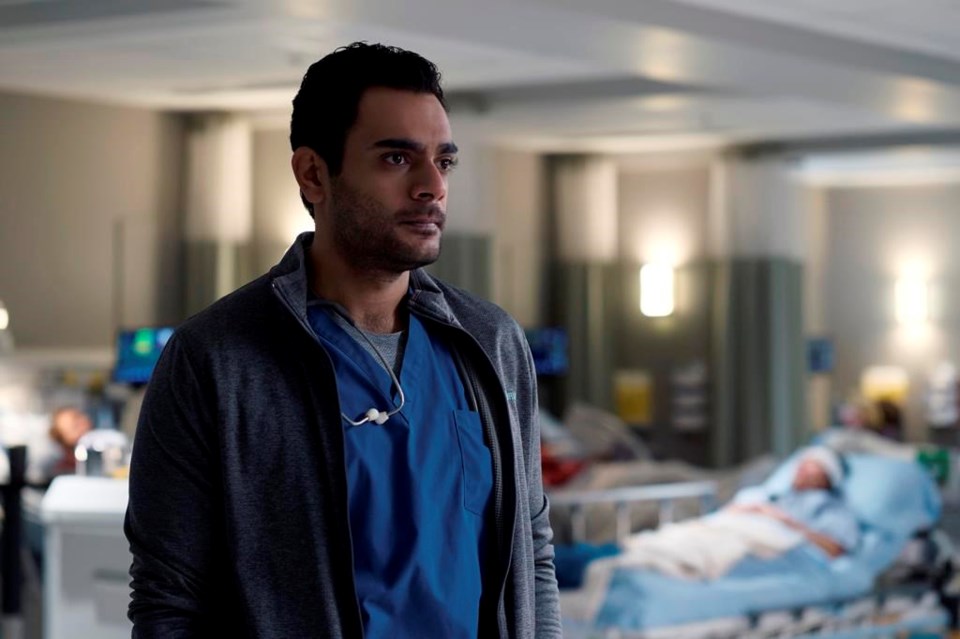TORONTO — When "Transplant" creator Joseph Kay conceived the idea for the series, the 2016 U.S. presidential election had just happened and thousands of Syrian refugees were resettling in Canada.
A story about a refugee Syrian doctor trying to form a new life in Toronto struck Kay as an apt and unique take on the medical drama genre.
And indeed, it became a hit with critics and audiences alike when it debuted on CTV last February.
Now, as the show debuts Tuesday on NBC, another presidential vote looms south of the border and the story seems just as timely, says Kay.
"We are aware that we're airing in a season leading up to an election, and that forefront in our show is the topic of immigration, because it's about a refugee," the writer/showrunner/executive producer said in a recent interview.
"And I think that our show just takes what I would say is a very grounded and honest and relatable look at that story, tells it from the perspective of a refugee and an immigrant but also in a way that makes it universal.
"In the context of the election, it's quite topical and relevant."
Hamza Haq stars in the Montreal-shot show as Dr. Bashir (Bash) Hamed, who takes care of his young sister and redoes his medical residency in Toronto after fleeing war-torn Syria.
His sharp instincts developed from critical situations in his former homeland are a great asset, although sometimes considered unconventional, to the emergency department.
CTV plans to re-air the first season to align with the U.S. premiere.
"We've always seen the main character as a hero, and it takes a very hopeful swing at things," said Toronto-based Kay, whose other TV credits including "This Life," "Ransom," "Frontier" and "Bomb Girls."
"So I do think that in the context of the pandemic, and everything else that's going on in the world today, existing as a big, hopeful show is also very timely."
Kay said he reached out to Syrians and other refugees early on in development, and they're still involved in every stage of the show, from conception to reading and consulting on set.
"We just never stop getting that kind of input. It's really crucial to be able to have the show feel honest, and we wouldn't be able to do it without them."
Kay said it seemed like NBC wanted to pick up the show in early March, before the COVID-19 pandemic.
Its U.S. debut comes at a convenient time, as networks look for programming to fill scheduling gaps left by production shutdowns.
"I think it's just a reflection of the show having done really well in Canada," Kay said. "I think NBC looked at what would be a similar audience for that kind of show, and they have a history of doing medical dramas there as well. And this one puts a unique spin on it. So I think it was just a really good fit for them."
The next season of "Transplant" has been greenlit and is "moving along slowly, like everything is right now in this business due to the pandemic," Kay said.
"We're a little bit delayed but we'll be back. It's well into being written. And pre-production and production is scheduled for the mid-late fall. But like everything right now, you adjust it based on the facts on the ground."
In early April, the show donated all of its personal protective equipment to hospitals in Montreal.
Kay said Season 2 takes place before COVID-19, so the show won't feature the pandemic, nor will it get political.
Kay said they don't consider it a political show anyway, but rather a story of second chances and starting over in life, whether you're a doctor or a patient.
And though the show now has an audience south of the border, the series will remain set in Toronto and will not be tweaked to tone down its Canadianness.
"I feel like now, there's more universality in the specific and that audiences globally are more into the idea of universality in the specific," Kay said.
"It feels good as a Canadian content creator to not have to pretend we're in generic North American city; that we can actually be in Toronto."
This report by The Canadian Press was first published Aug. 31, 2020.
Victoria Ahearn, The Canadian Press




